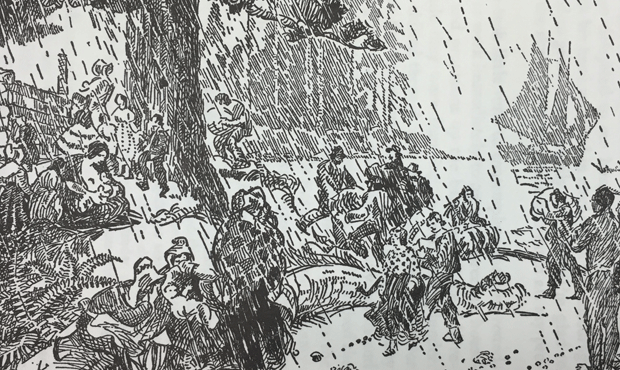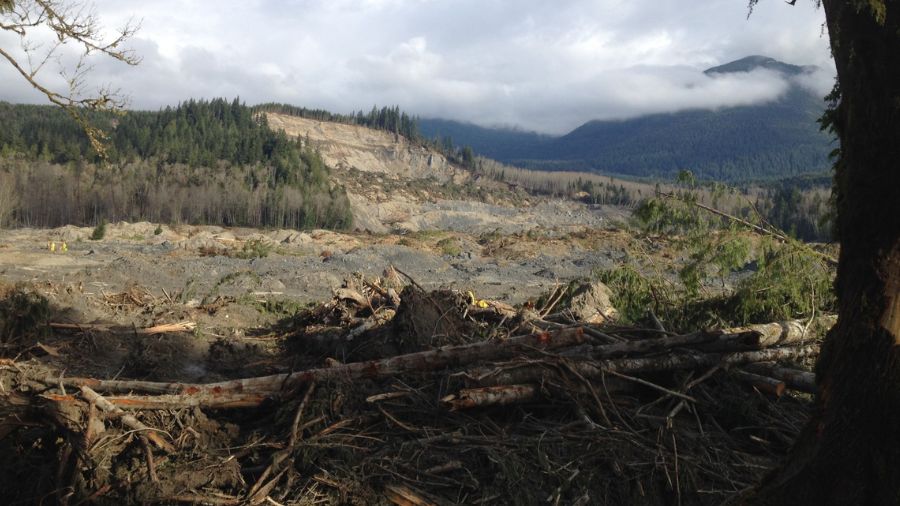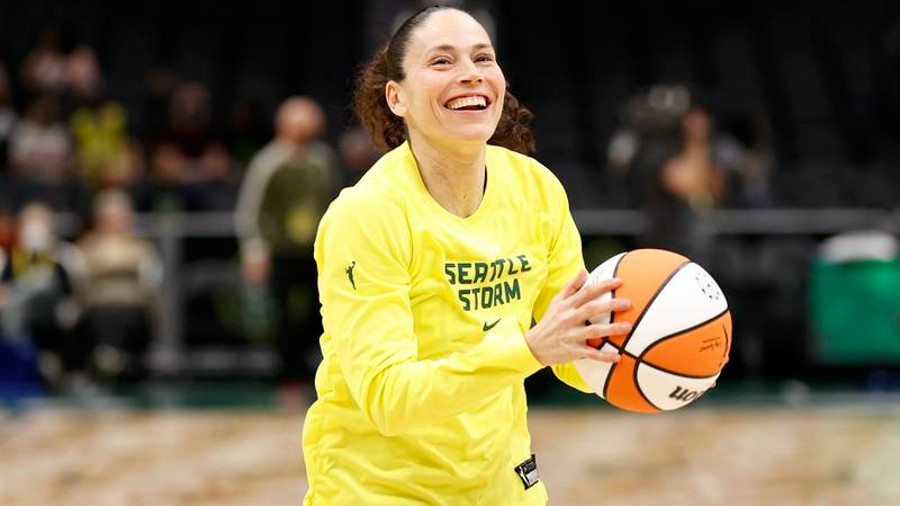Native Americans greeted pioneers to Seattle 165 years ago
Nov 10, 2016, 7:16 AM | Updated: Nov 11, 2016, 11:19 am

The landing at Alki on November 13, 1851 by Seattle founders known as the Denny Party, as drawn by Paul Gustin. (Courtesy of Feliks Banel)
(Courtesy of Feliks Banel)
When Seattle quietly marks the 165th anniversary this Sunday of the arrival of the Denny Party at Alki Beach, Amy Louisa Johnson won’t be in town to celebrate the founding of the Pacific Northwest’s largest city.
Johnson is a great-great-granddaughter of pioneer David Denny, who came here from Cherry Grove, Illinois along with several family members. David Denny was known for taking extra care to maintain ties with local Native Americans.
“He spoke Lushootseed and Chinook [Native American dialects] fluently. He was considered a great friend to the Native people,” Johnson said of her great-great-grandfather.
Snagboats: Cleaning up after storms since the 1880s
“His cabin and Thomas Mercer’s were the two cabins that weren’t burnt in the Battle of Seattle, that weren’t burnt down because even the [Native American] people from Eastern Washington knew they were friends of the Indians,” Johnson said.
With David Denny and David’s wife Louisa in mind, Amy Johnson organized an event more than a decade ago to formally thank the Duwamish Tribe for helping the pioneers of Nov. 13, 1851.
The event was called “Coming Full Circle.” It was held in the auditorium at the old MOHAI in Montlake in 2004. Descendants of the Denny Party gathered with descendants of Chief Seattle and members of the Duwamish Tribe for heartfelt thank-you speeches, musical performances, and exchange of ceremonial gifts.
Native Americans living in what’s now Seattle, including Chief Seattle, helped with practical advice and other aid to the settlers who landed at what’s now Alki Beach in West Seattle on a rainy morning in 1851. During that first tough winter, the story goes, Native Americans suggested that sickly infants in the Denny Party be nourished with clam nectar. They also showed the men in the party how to split cedar, by hand, into useful pieces of lumber.
While the early months at what the settlers dubbed “New York Alki” (New York . . . someday) were not without friction, relations between the pioneers and the Native Americans were peaceful. But by the end of the 1850s, the federal government created reservations, consolidated several tribes, and moved Native Americans off of lands their ancestors had occupied for millennia.
Amy Johnson’s cousin Brewster Denny, great-grandson of Arthur Denny, spoke at the event of the pioneers’ struggle and of the later treatment of Native Americans.
“They crossed the plains in that most difficult trip, and it was a terribly difficult trip. And then came here and landed on this wet beach . . . it’s incredible,” Denny said.
“And the saving grace, the saving moment of all of that was this precious Duwamish Tribe, who met them, embraced them, helped them, and were just wonderful to them,” Denny said.
The Native Americans treated the pioneers, Denny said, “much better than the country, the state, and this city have been to them in the years to follow.” The Duwamish and other local tribes signed away rights to their lands in a number of treaties negotiated by first Washington Territorial Governor Isaac Stevens.
Duwamish Tribal chair Cecile Hansen also spoke, and it was clear it was a meaningful event for her.
“I have a little script here, but I do have to tell you that I’m very moved by what I’ve been hearing today, and I’m going to try to get through this without shedding a few tears,” Hansen said. “But you know, God gave us tears so we have to shed them once in awhile.”
“And these are happy tears,” Hansen said.
Prior to organizing “Coming Full Circle,” Johnson was first inspired by her son’s elementary school history studies to create a group called the Descendants Committee. She recruited her father, Andrew Harris; descendants of the Low, Terry and Denny families who’d arrived at Alki together in 1851; and members of the Duwamish Tribe.
For Johnson, who at that time was in her forties, delving deeply into her family’s history was something new. It became clear to her almost immediately that there was an opportunity to reach out to the Duwamish Tribe to make sure that they knew that the descendants were grateful for the help their ancestors found here in the early 1850s.
Johnson says that she doesn’t exactly feel guilty about her ancestors’ role in displacing local Native Americans. If it hadn’t been the Denny Party that came ashore on Nov. 13, 1851, she says, somebody else, perhaps not so nice, would’ve come and built a city where Seattle now stands.
Can you solve this mystery on Monster Road?
“I’m just really proud that because of the people [my ancestors] were, they respected the Native people and honored them,” Johnson said.
Coming Full Circle was an emotional event, and when it culminated with a special presentation to Cecile Hansen, Johnson says it was an unforgettable experience.
“It’s hard to describe because as a pioneer descendant it’s weird because sometimes if I’m coming in on a ferry, I see a different Seattle than other people see,” Johnson said. “I see the Seattle that was . . . .not the Seattle’s that now.”
“So it just seemed like this moment where it was like the Seattle that was, and it felt like that friendship had never been lost, the friendship between Chief Seattle and David Denny and the other pioneers,” Johnson said.
“[It] felt like, at that moment, it was very much alive.”
Johnson is disappointed that the Duwamish Tribe has been repeatedly denied formal recognition by the federal government. She’d like to see local government, perhaps the City of Seattle, step in to take action to formally recognize the Duwamish regardless of what the federal government says.
With all these deep connections to local history, why won’t Amy Johnson be in Seattle to mark the city’s 165th anniversary?
As it turns out, Johnson’s work with the Descendants Committee and Coming Full Circle inspired her, in her fifties, to go to grad school and study Native American history at Washington State University.













